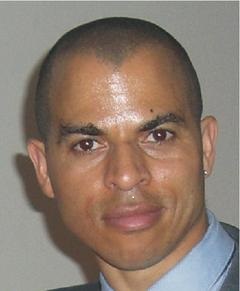
10 Ways to Build Successful Black Organizations
by Robin Browne
This article doesn’t give definitive answers on how to build successful Black organizations. Instead, it presents ideas to add to the conversation about what we can build together.
-
Learn from the past – and be very clear about your vision for the future.
The good thing about the many failed attempts at starting Black organizations is we have lots of people to learn from. Talk to as many as you can. Then establish a vision and mission about how you’re going to accomplish the change you wish to see in the world. With this clear starting point and non-negotiable path, you’ll always have a check and balance to keep you clear as you pursue your goals. Have a core values orientation document for new members with a pledge that includes annual evaluations.
-
Be inclusive at all levels.
The diversity of Black communities means that building truly diverse organizations takes more than just saying you’re going to do it in meetings. You have to meet with a broad group of community members and have sometimes difficult conversations about how you can, or can’t, work together. The conversations must be respectful, in-person as much as possible, and based on the common concern for improving the lives of Black people in Canada.
-
Be transparent by default.
Healthy organizations are built on trust. One of the main ways to build trust is to have clear policies and practices on sharing information and to apply them fairly, making sharing as much as possible the default. When you can’t share something, always have a clear reason why not.
-
Evolve based on community feedback.
Solicit and act on community feedback and show the community that you’re changing the organization based on their input.
-
Embrace your critics (at least the constructive ones).
Just as the media is essential to a healthy democracy, we must embrace thoughtful critics, especially those from our own community, as essential partners in building strong organizations.
-
Plan for financial self-sustainability.
Every elder I spoke to about why previous national Black organizations, or attempts to build them, had failed, said the same thing: dependency on government funding. We have to build financially self-sustaining organizations and, luckily, we have tools and examples like never before to help us do so.
-
Build leaders at all levels.
One of Barack Obama’s key messages is, “Change will not come if we wait for some other person, or if we wait for some other time. We are the ones we’ve been waiting for. We are the change that we seek.” This message must communicated, and acted on, at every level of Black organizations. Empower people by listening to and implementing their good ideas. Mentor people to move out of their comfort zone and take on increasing leadership roles.
-
Meet fact to face.
On May 31, I joined about 18,000 people at Ottawa’s Canadian Tire Centre to listen to a Black man talk for 90 minutes. One of Barack Obama’s messages that night was the crucial role face-to-face meetings played in his historical 2008 election victory. His team provided the incentive and tools for people to organize their own community meetings to discuss the issues that mattered to them. He also talked about how his diverse team of volunteers got to know each other by working shoulder to shoulder in small offices across the country.
In this time when social media makes it easy for people to vilify each other from the safety of their own keyboard, getting together IRL (in real life) is essential to building the understanding and empathy required for strong, sustainable organizations.
-
Build coalitions.
We all know there’s power in numbers. However, there’s a far more powerful reason for Black organizations to build coalitions with other groups: systemic discrimination affects a lot more than Black people. We should build coalitions with Indigenous, anti-poverty, LGBTQ and women’s groups; coalitions that recognize that different groups have different levels of power and privilege.
-
Don’t expect to get everyone in the tent.
When you’re starting something, you’re not going to get everyone on board at first. In fact, you’ll get very few people on board. This is especially true in Black communities partly because many people are in precarious employment which they may have well justified fears of losing. But that’s no reason to give up. We can get a lot done with a small group of folks dedicated to building truly inclusive initiatives.
One final point. Guard against “Founders Syndrome”. Those that start things need to know when to step aside to let others keep building it.
Together we grow stronger.
About the writer
Robin Browne is an African-Canadian communications professional and father of two boys. He lives in Ottawa.
